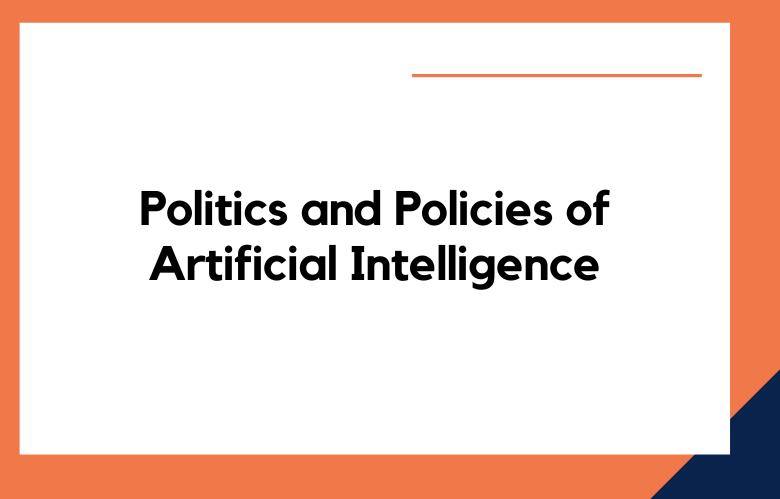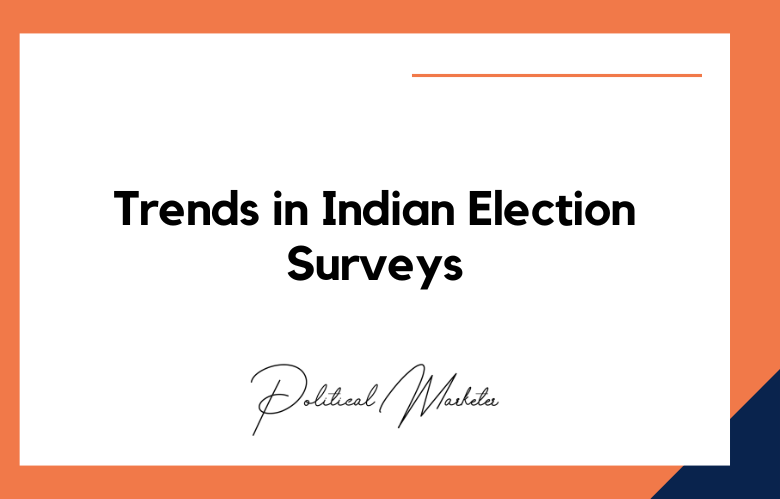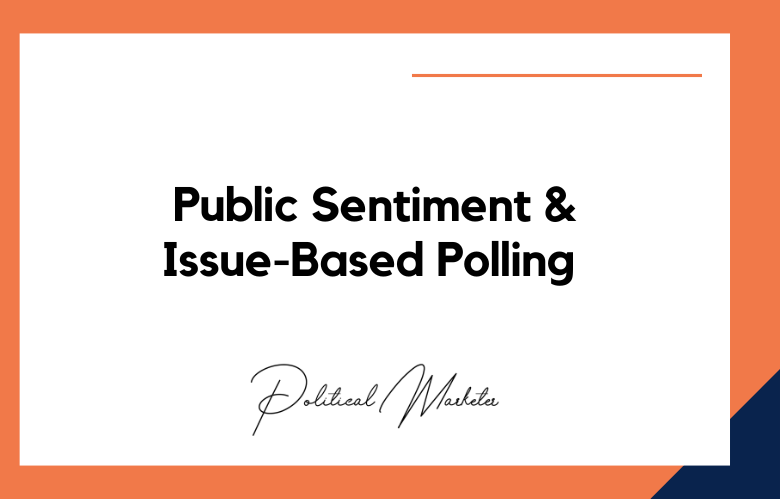Artificial Intelligence (AI) is slowly but surely revolutionizing our world. From autonomous vehicles to smart homes, AI-powered devices have become integral to our lives. However, as with any new technology, there are always concerns about how it will develop. This is where politics and policies come into play. We’ll explore the politics and policies of artificial intelligence and what this means for the future of this exciting field.
Government policies on AI
Governments worldwide recognize the importance of AI and have taken steps to ensure its safe and ethical development. In the US, The National Institute of Standards and Technology (NIST) released its plan for AI standards in 2019. The European Union is also working on developing guidelines for AI technology. These policies promote innovation while ensuring AI is developed and deployed safely and ethically.
The impact of AI on jobs
One of the biggest concerns about AI is the impact it will have on jobs. Advancements in AI mean that machines are becoming increasingly capable of performing tasks that previously required human input. However, studies suggest that while some jobs will be lost, new jobs that require different skills will be created. Therefore, policies must be implemented to ensure workers transition into new roles smoothly.
Ethics in AI
AI algorithms have the potential to make decisions that impact people’s lives, from approving loans to determining who to hire. Therefore, ethical considerations in AI development are essential. Policies are needed to ensure that algorithms are fair and unbiased and that AI is used in a way that respects privacy and human dignity.
International politics of AI
The development of AI and its potential to disrupt industries has led to concerns about this technology’s economic and geopolitical implications. Countries that are slow to adopt or develop AI risk falling behind in the global economy. At the same time, there are fears that AI could be used for nefarious purposes, such as cyber-attacks or surveillance. Policies are needed to address these concerns and ensure that the development of AI benefits society as a whole.
Challenges in policymaking
Policymaking in AI poses several challenges. The pace of technological change means that policies must be flexible enough to adapt to new developments. The global nature of the technology also means that policies must be coordinated across governments and international bodies. There is a need for policymakers to be sufficiently knowledgeable about the technology to be able to make informed decisions.
Navigating the Future: Politics and Policies in the Era of Artificial Intelligence
As the use of artificial intelligence (AI) continues to flourish in diverse sectors of society, politics and policies must keep pace with the challenges and implications posed by this rapidly evolving technology.
The impact of AI extends beyond the realm of science and technology, affecting areas such as education, healthcare, law enforcement, and the economy, to name a few. The integration of AI in these sectors has already revolutionized the way we live and work and will continue to do so in the future.
However, the potential of AI comes with considerable responsibilities, and governments and policymakers need to implement regulations and policies that safeguard against the negative impacts of AI. For example, the use of facial recognition technologies has raised concerns regarding privacy infringement and unjust surveillance of marginalized communities.
AI Governance: An Inevitable Balancing Act for Politicians and Policymakers
Artificial intelligence (AI) technology can potentially revolutionize many fields, including healthcare, transportation, and education. However, with this potential comes an inevitable balancing act for politicians and policymakers. As AI development has accelerated in recent years, governments are grappling with how to regulate this rapidly evolving field.
One of the primary concerns regarding AI is ethics. AI systems can make decisions independently, which could have serious consequences, particularly in the case of autonomous vehicles. In addition, AI systems could potentially perpetuate biases in the data they are trained on. Policymakers must address these ethical considerations to ensure that AI development remains safe and beneficial for society.
The Ethics of AI: Politics’ Role in Shaping AI Policies
As we progress towards a digital age, Artificial intelligence (AI) remains one of technology’s most exciting innovations. However, the proliferation of AI has also raised several ethical concerns, including concerns about AI being misused, causing harm, and being used to discriminate against people based on gender, ethnicity, or other personal characteristics.
While researchers remain optimistic about AI’s potential benefits, policymakers are beginning to recognize that ethical considerations must guide AI development and implementation. The question arises: who should be responsible for shaping AI policies where AI’s moral concerns are addressed and examined?
Artificial Intelligence: A Battleground for Political Power
In recent years, there has been a sharp rise in the development of artificial intelligence (AI) technology, which is increasingly becoming a central focus among global political leaders. As AI continues to shape various aspects of modern life, it is increasingly becoming evident that it is a battleground for political power.
Various governments worldwide have begun investing heavily in AI technology, believing it will give them a competitive edge in international trade and national security. These governments understand that AI could revolutionize their operations and maintain their power in the world order. AI has become a strategic priority in the United States, China, Russia, and other global powers, with each country vying for supremacy in AI technology.
AI Regulations in the Making: Political Implications and Policy Challenges
Growing Concerns
The development and implementation of artificial intelligence (AI) technologies have raised significant concerns among policymakers and the public. These concerns range from potential job displacement to biased decision-making and privacy issues. As AI advances, it is becoming increasingly important for governments to establish regulations addressing these concerns.
The Role of Politics
The regulation of AI is a highly political issue, with different countries taking varying approaches. Some governments are more proactive in regulating AI, while others take a more hands-off approach, allowing the market to dictate its use. This has led to debates over whether global AI standards should exist or whether each country should have its own regulations.
Balancing Innovation and Safety
One of the biggest challenges in regulating AI is balancing promoting innovation and ensuring safety and ethical use. On one hand, strict regulations could stifle innovation and hinder progress in this rapidly evolving field. On the other hand, a lack of regulation could lead to unintended consequences and potential harm to society.
Addressing Bias
Bias in AI algorithms has been a significant concern as they can perpetuate discrimination and reinforce existing societal inequalities. This has led to calls for regulations that require transparency in AI systems and address bias in their design and development.
Data Privacy
AI relies heavily on data, raising concerns about privacy rights and protecting personal information. Regulations must address how AI systems collect, store, and share data to protect individuals’ privacy rights.
International Cooperation
As AI becomes increasingly integrated into our global society, international cooperation will be crucial in developing effective regulations that can be applied across borders. However, this poses challenges as countries have different cultural values, legal systems, and political agendas.
Ethical Considerations
The use of AI also raises ethical considerations, such as accountability for decisions made by autonomous systems and the potential harm caused by their actions. Regulations must address these ethical concerns and ensure that AI is used responsibly and ethically.
Balancing Industry Interests
Another challenge in regulating AI is balancing the interests of different industries, such as technology companies, with the public’s interest. This can be difficult as industries may have conflicting priorities, and regulations must consider the potential economic impacts on these industries.
Keeping Up with Advancements
AI constantly evolves, making it challenging for regulations to keep up with its advancements. Governments must find ways to adapt their rules to new developments in AI while still addressing existing concerns.
The Need for Flexibility
Given the rapid pace of change in the field of AI, regulations must be flexible enough to adapt to new technologies and applications while protecting public safety and privacy. This will require ongoing review and updates of regulations as AI continues to advance.
Conclusion:
AI can potentially transform our world, but it must be developed and deployed safely and ethically. This requires a coordinated effort by governments, international bodies, and the private sector.
Developing policies and regulations for AI poses many challenges, but it is essential to address these issues so that society can reap the benefits of this exciting technology. In conclusion, we believe that the politics and policies of artificial intelligence need to be carefully considered and balanced to ensure that AI is used in a way that benefits society and is in line with ethical standards.
Call: +91 9848321284
Email: [email protected]











